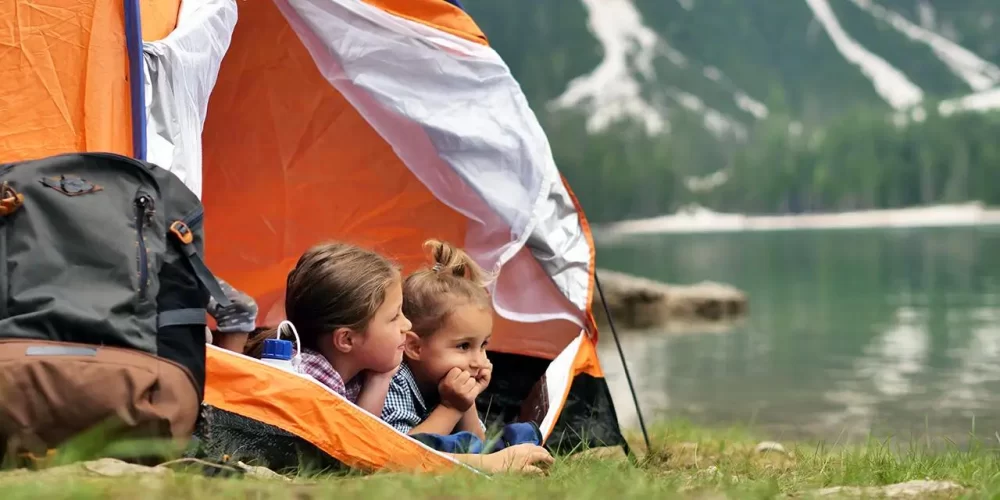Explore the most serene quiet lake camping spots America has to offer. Learn how to find secluded camping sites and enjoy peaceful lakefront nature. Visit Pine Cliff Resort for expert camping gear and tips to enhance your experience.

- Why Choose Quiet Lake Camping Spots America
- Top Characteristics of Secluded Lake Camping Sites
- Exploring the Best Quiet Lake Camping Spots in America
- Planning Your Trip to Secluded Lake Campsites
- Real Experience from a Peaceful Lake Camping Trip
- How Pine Cliff Resort Supports Your Lake Camping Adventure
1. Why Choose Quiet Lake Camping Spots America
Quiet lake camping spots across America offer an unparalleled escape from the noise and bustle of everyday life. For many outdoor enthusiasts, the appeal lies in the serene environment where nature’s sounds—gentle lapping water, rustling leaves, and bird calls—replace urban noise. These peaceful locations provide campers with a chance to reconnect with themselves, loved ones, and the environment.
Unlike crowded campgrounds or popular tourist lakes, quiet lake camping spots ensure privacy, reducing the impact of human activity on the natural setting. This solitude not only enhances relaxation but also offers a more intimate experience with wildlife and the landscape, making your camping trip truly rejuvenating.
1.1 The Mental and Physical Benefits of Peaceful Camping
Research shows that spending time in quiet natural settings can lower stress levels, improve mood, and boost overall mental health. Physically, the calm environment encourages restful sleep and active outdoor recreation like fishing, kayaking, or hiking without distractions.
1.2 How Quiet Spots Preserve Nature Better
Secluded lake camping areas often face less pollution and environmental degradation. Campers who seek out these spots tend to follow Leave No Trace principles more strictly, helping preserve the ecosystem for future generations.
2. Top Characteristics of Secluded Lake Camping Sites
When searching for quiet lake camping spots America-wide, it’s important to understand what features create that sense of peacefulness and seclusion.
2.1 Accessibility and Location
Secluded campsites are often located in less accessible regions—deep within national forests, state parks, or wilderness areas. This limited access naturally reduces crowds. Some sites require hiking in or boating to reach, adding to the sense of adventure and isolation.
2.2 Natural Barriers and Landscape Features
Thick tree cover, natural ridges, and the shape of the shoreline can shield campsites from nearby visitors or noisy roads. These physical features contribute to soundproofing and privacy, enhancing your quiet camping experience.
2.3 Size and Campground Density
Smaller campgrounds or dispersed single-site camping areas encourage quieter environments. In contrast, large, densely packed campgrounds often invite social gatherings and can be noisy.
3. Exploring the Best Quiet Lake Camping Spots in America
America is home to countless peaceful lakefront camping locations. Here are a few examples that stand out for their tranquility and natural beauty.
3.1 Boundary Waters Canoe Area Wilderness, Minnesota
Known for its vast network of pristine lakes, this wilderness offers true solitude for campers willing to paddle or hike in. The absence of motorized boats on many lakes helps keep noise levels low, allowing nature’s quiet to dominate.
3.2 Lake Chelan National Recreation Area, Washington
Remote campsites around Lake Chelan provide stunning water views without the crowds. The area's rugged terrain and extensive forest cover contribute to a peaceful ambiance rarely found in more commercialized lake spots.
3.3 Adirondack Park, New York
With thousands of lakes and ponds scattered through this massive park, many quiet lake camping spots await discovery. Sites like those around Round Lake or Rainbow Lake offer seclusion combined with excellent fishing and hiking opportunities.
4. Planning Your Trip to Secluded Lake Campsites
Camping in quiet lake spots requires thoughtful preparation to ensure safety and enjoyment.
4.1 Research and Permits
Because secluded sites are often protected or managed, securing permits and understanding local regulations is essential. Planning your route and knowing access points helps avoid surprises.
4.2 Gear Selection for Seclusion
Since amenities are minimal or nonexistent, campers should bring reliable shelter, water filtration, and cooking gear. Lightweight, durable equipment is preferable when hiking or paddling to reach these spots.
4.3 Environmental Responsibility
Following Leave No Trace principles is critical to preserving these quiet spots. Proper waste disposal, minimizing campfire impact, and respecting wildlife ensure that these areas remain pristine.
5. Real Experience from a Peaceful Lake Camping Trip
Last fall, James and his family embarked on a trip to a lesser-known lake in the Adirondacks. He recounted their experience:
"We purposely chose a quiet lake camping spot to escape city noise. Arriving after a short hike, the stillness was almost surreal. No buzzing cars, just the gentle ripple of water and occasional bird songs. It was refreshing to unplug, and the kids loved fishing right from our tent's doorstep. The solitude helped us bond and recharge in ways big campgrounds never could."
James credits part of their success to the quality gear and expert advice they found at Pine Cliff Resort, which helped them prepare for a self-sufficient and comfortable camping experience.
6. How Pine Cliff Resort Supports Your Lake Camping Adventure
Whether you’re a seasoned camper or new to quiet lake camping spots America-wide, Pine Cliff Resort offers essential gear and personalized recommendations. From lightweight tents and portable water filters to eco-friendly cookware and insect protection, their products are curated to enhance your outdoor experience.
Beyond products, Pine Cliff Resort’s team provides expert insights on choosing locations, gear maintenance, and safety tips specific to lake camping in secluded environments. Their commitment to quality and customer support makes them a trusted partner for those seeking peaceful lake escapes.
Preparing with Pine Cliff Resort ensures your adventure in quiet lake camping spots is memorable, comfortable, and respectful of the natural beauty you’ll encounter.
Tipsu Tyee Campground
Jacksonville, OR 97530, USA
Visit Location PageCoy & Wilma's Seasonal Campground
N Rend City Rd, Sesser, IL 62884, USA
Visit Location Page